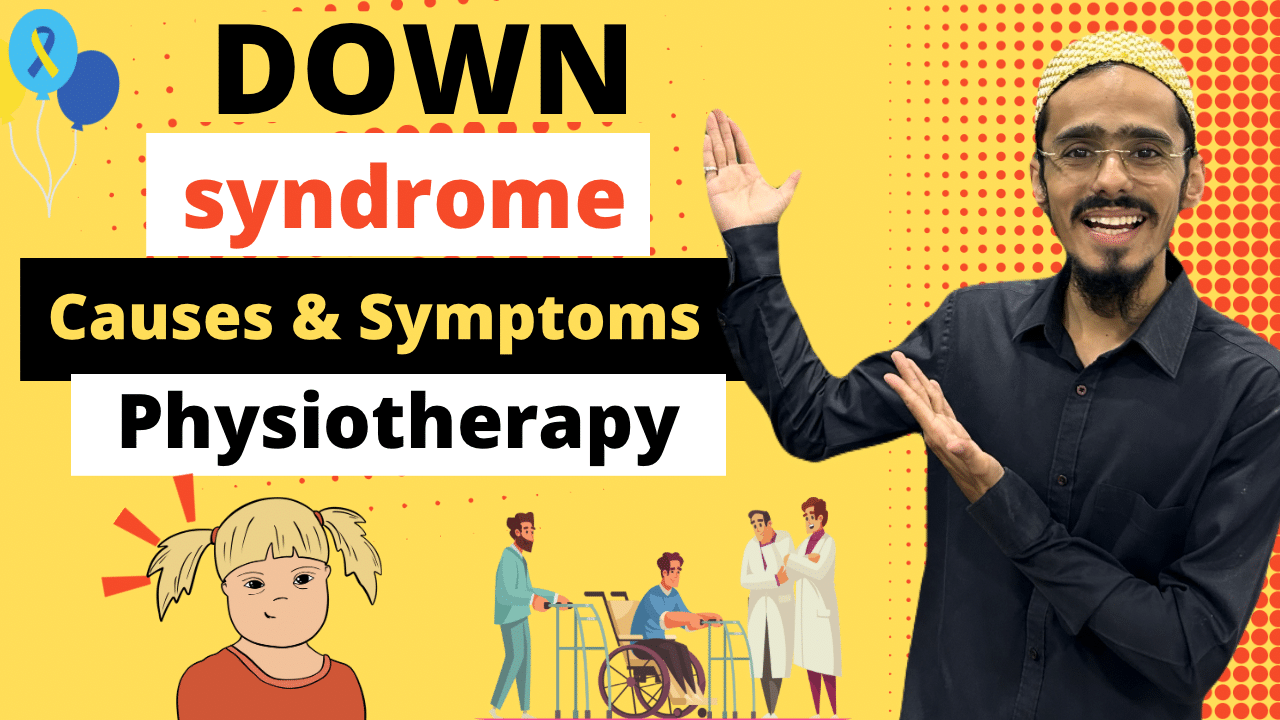Introduction: Down Syndrome and Effective Physiotherapy Treatments
Down syndrome, a chromosomal condition, affects individuals worldwide, characterized by cognitive delays, distinct facial features, and often, accompanying medical issues.
While there is no cure for Down syndrome, various therapies, including physiotherapy, play a crucial role in improving the quality of life and enhancing the physical abilities of individuals with this condition.
Understanding Down Syndrome:
Down syndrome results from an extra copy of chromosome 21, impacting both physical and cognitive development.
This additional genetic material can lead to intellectual disabilities, developmental delays, and a range of health conditions
such as heart defects, digestive issues, and impaired muscle tone.
Physiotherapy in Down Syndrome Management:
Physiotherapy forms an integral part of the multidisciplinary approach in managing Down syndrome.
It focuses on enhancing motor skills, muscle strength, coordination, balance, and overall physical development.
The objectives of physiotherapy for individuals with Down syndrome often include:
- Motor Skill Development: Physiotherapists work on improving gross motor skills like crawling, sitting, standing, and walking through various exercises and activities tailored to the individual’s abilities.
- Muscle Tone Improvement: Low muscle tone, a common trait in Down syndrome, can affect mobility and coordination. Physiotherapy interventions include exercises that strengthen muscles and improve tone, aiding in better movement and posture.
- Balance and Coordination: Activities designed to enhance balance and coordination are essential in helping individuals with Down syndrome navigate daily tasks more efficiently and safely.
- Enhancing Strength and Endurance: Targeted exercises and activities are employed to build strength and endurance, facilitating better participation in physical activities and daily routines.
- Respiratory Support: Physiotherapists may also assist in respiratory exercises to improve breathing patterns and lung capacity, addressing potential respiratory issues commonly associated with Down syndrome.
- Adapted Equipment and Techniques: Physiotherapists may recommend adaptive equipment and techniques to facilitate movement, enhance independence, and improve overall functionality.
Approaches in Physiotherapy:
Physiotherapy techniques for individuals with Down syndrome are highly individualized, considering the unique needs and abilities of each person.
These may include:
- Early Intervention: Starting physiotherapy early in a child’s life can significantly impact their development. Early interventions focus on fundamental skills crucial for future motor and cognitive development.
- Tailored Exercise Programs: Physiotherapists create personalized exercise routines that focus on improving specific motor skills, muscle strength, and coordination based on the individual’s abilities and goals.
- Hydrotherapy: Water-based therapy sessions can be beneficial, providing a supportive and low-impact environment for individuals with Down syndrome to exercise and improve muscle strength and flexibility.
- Collaborative Approach: Physiotherapists often collaborate with other healthcare professionals, such as occupational therapists and speech therapists, to ensure holistic care and address various aspects of the individual’s needs.
Benefits of Physiotherapy:
The benefits of physiotherapy in individuals with Down syndrome are multifaceted.
It not only enhances physical abilities but also contributes to improved confidence, independence, social interaction, and overall quality of life.
Conclusion: Down Syndrome and Effective Physiotherapy Treatments
Physiotherapy plays a pivotal role in supporting individuals with Down syndrome, addressing their unique physical challenges, and enhancing their overall well-being.
Through personalized interventions, early interventions, and a multidisciplinary approach.
Physiotherapy empowers individuals with Down syndrome to reach their maximum potential, fostering independence and improving their quality of life.
